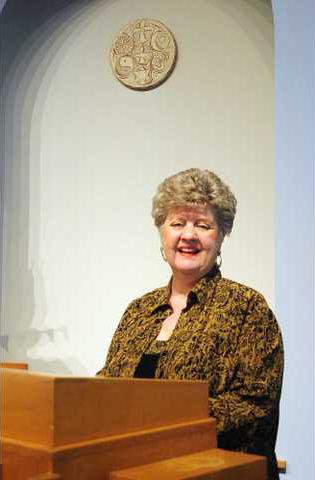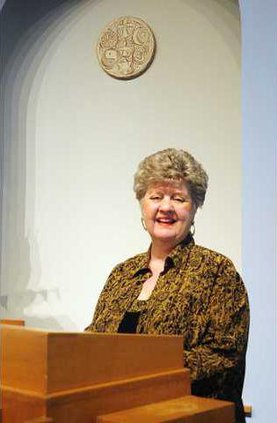Although it may not seem like it now, there was a time when women weren’t accepted in leadership positions within the church. In its 1980 annual report, the Association of Theological Schools — the commission that accredits graduate-level theological schools — determined that there were disproportionately fewer female seminary students than there were male students. "This is surely the result of the fact that ordained ministry has not been open to women until recently in many church bodies, while continuing to be closed in others," the report states. "It’s becoming a lot more acceptable for women to be leaders in the church," said the Rev. Jenny Burns, an associate pastor at First Baptist Church Gainesville. "People are recognizing that it’s not so much about gender, as it is about your willingness to care and meet the needs of people." Although some denominations have been slow to catch on, the Rev. Dr. Steve Winter says women have always played a significant role in Methodism. "Way back in the early 1800s, John Wesley (co-founder of the Methodist church) relied heavily on women in leadership roles," said Winter, executive pastor of Gainesville First United Methodist Church. "They may not have been ordained clergy, but they were definitely driving forces in the church." Although the first woman wasn’t ordained as a minister in the United Methodist Church at-large until 1956, today female reverends aren’t uncommon. Currently, two of five pastors under the Rev. Dr. Terry Walton — Gainesville First United senior pastor — are women. Soon another woman will be joining the staff as the pastor of congregational care and older adults at the church when the Rev. Tom Jones vacates the position. "We are delighted to have so many gifted women and men on our staff," said Winter, who has been a member of the clergy for 36 years. "Having women leaders isn’t something new or different for us." Female ministers may be widely accepted now, but in the early 1970s, the theological association reported that only 10 percent of seminary students were female. By 1980 the percentage more than doubled at 21 percent. In 1990, women accounted for 29 percent of all seminary students. Today, they make up about 33 percent. "My seminary classes were about half (women) and half (men), but that’s because of the school I went to," said Burns, who has been a member of the clergy for the last 10 years. "I attended McAfee (School of Theology) in Atlanta. It is affiliated with Mercer University and is very supportive of women — which is why I chose it." The Rev. Sydney Magill-Lindquist, pastor of Unity of Gainesville Church, had a similar experience. "I was very lucky because I had just as many female teachers (and classmates) as male," said Magill-Lindquist, who attended Unity Village in Lee Summit, Missouri. Despite having diversity in the classroom and being a part of a ministry that was co-founded by a woman, Magill-Lindquist says that she still occasionally encounters individuals who are not accustomed to female leaders. "Sometimes you run into someone who says they are not comfortable with a woman minister," Magill-Lindquist said. "I always say, ‘That’s OK. I’ll be here when you can find your comfort zone.’" In many cases, Magill-Lindquist says that the lack of comfort comes from mind sets based on childhood teachings. "Some people are raised that way and I understand that," said Magill-Lindquist, who has been a church leader for the last 25 years. "But women becoming ministers is a natural progression."
Increase in female church leaders a natural progression

